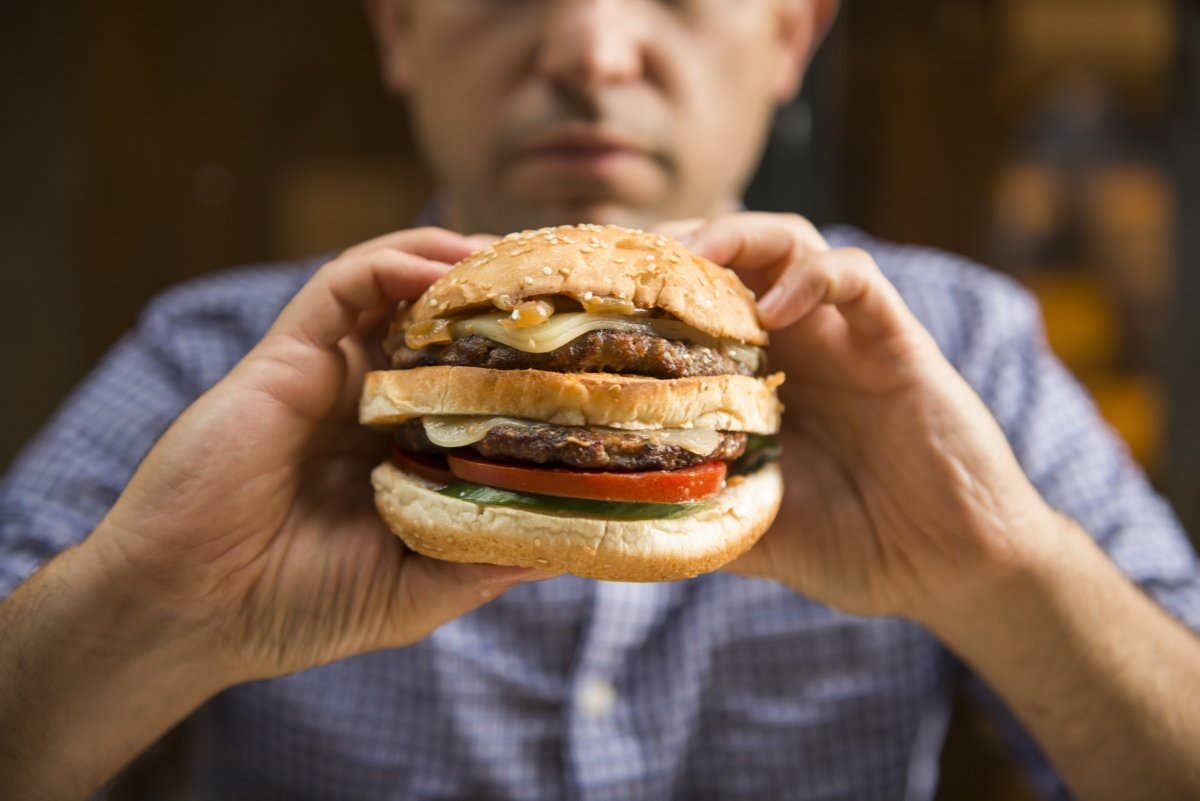High-fat diets can disrupt gut bacteria and increase anxiety, study finds
A high-fat diet can disrupt gut bacteria and alter behavior, ultimately affecting brain chemicals in ways that can increase anxiety.

When life gets stressful, many of us find comfort in junk food. However, new research from the University of Colorado Boulder suggests that this might not be the best strategy. The study indicates that a high-fat diet can disrupt gut bacteria and alter behavior, ultimately affecting brain chemicals in ways that can increase anxiety.
Christopher Lowry, a professor of integrative physiology at CU Boulder, led the research. “Everyone knows that these are not healthy foods, but we tend to think about them strictly in terms of a little weight gain,” Lowry said. “If you understand that they also impact your brain in a way that can promote anxiety, that makes the stakes even higher.”
Lowry's team conducted their study on adolescent rats, dividing them into two groups. One group was fed a standard diet with 11% fat for nine weeks, while the other group received a diet with 45% fat, mainly from animal sources. For comparison, the Centers for Disease Control and Prevention (CDC) notes that the typical American diet contains about 36% fat.
Throughout the nine-week study, researchers collected fecal samples to analyze the gut bacteria, or microbiome, of the rats. After the dietary period, the rats underwent behavioral tests to assess their responses.
Gut Bacteria and Anxiety: The Microbiome's Role
The results revealed that rats on the high-fat diet not only gained weight but also showed a significant decrease in gut bacteria diversity. According to Lowry, greater bacterial diversity is generally linked to better health.
The high-fat diet rats had more bacteria from the Firmicutes category and fewer from the Bacteroidetes category. This altered ratio of Firmicutes to Bacteroidetes is often associated with diets common in industrialized societies and with obesity.
Related Stories
Further analysis showed that the high-fat diet rats had increased expression of three genes (tph2, htr1a, and slc6a4) that are crucial for the production and signaling of serotonin. This was particularly evident in a brainstem region called the dorsal raphe nucleus (cDRD), which is associated with stress and anxiety.
While serotonin is often called the "feel-good" neurotransmitter, Lowry explains that certain serotonin neurons can actually trigger anxiety-like responses when activated. The heightened expression of the gene tph2, which produces the enzyme tryptophan hydroxylase, in the cDRD has been linked to mood disorders and suicide risk in humans.
“To think that just a high-fat diet could alter expression of these genes in the brain is extraordinary,” Lowry remarked. “The high-fat group essentially had the molecular signature of a high anxiety state in their brain.”
Lowry suggests that an unhealthy microbiome can weaken the gut lining, allowing bacteria to enter the bloodstream and communicate with the brain via the vagus nerve, which connects the gastrointestinal tract to the brain.
“If you think about human evolution, it makes sense,” Lowry said. “We are hard-wired to really notice things that make us sick so we can avoid those things in the future.”
Healthy Eating: Choosing the Right Fats
Not all fats are harmful. Lowry emphasizes that healthy fats, like those found in fish, olive oil, nuts, and seeds, can be anti-inflammatory and beneficial for the brain.
His advice? Diversify your diet with a variety of fruits and vegetables and include fermented foods to support a healthy microbiome. It's also wise to cut down on junk foods like pizza and fries. Interestingly, Lowry suggests that if you do indulge in a hamburger, adding avocado might help. Some studies indicate that healthy fats can mitigate the adverse effects of unhealthy fats.
This study highlights that what we eat can have far-reaching effects beyond just weight gain. It underscores the importance of a balanced diet not only for physical health but also for mental well-being. So next time you're feeling stressed, consider reaching for a healthy snack instead of junk food—it might just make a difference for your brain as well as your body.
For more science news stories check out our New Discoveries section at The Brighter Side of News.
Note: Materials provided above by The Brighter Side of News. Content may be edited for style and length.
Like these kind of feel good stories? Get the Brighter Side of News' newsletter.
Joshua Shavit
Science & Technology Writer | AI and Robotics Reporter
Joshua Shavit is a Los Angeles-based science and technology writer with a passion for exploring the breakthroughs shaping the future. As a contributor to The Brighter Side of News, he focuses on positive and transformative advancements in AI, technology, physics, engineering, robotics and space science. Joshua is currently working towards a Bachelor of Science in Business Administration at the University of California, Berkeley. He combines his academic background with a talent for storytelling, making complex scientific discoveries engaging and accessible. His work highlights the innovators behind the ideas, bringing readers closer to the people driving progress.



